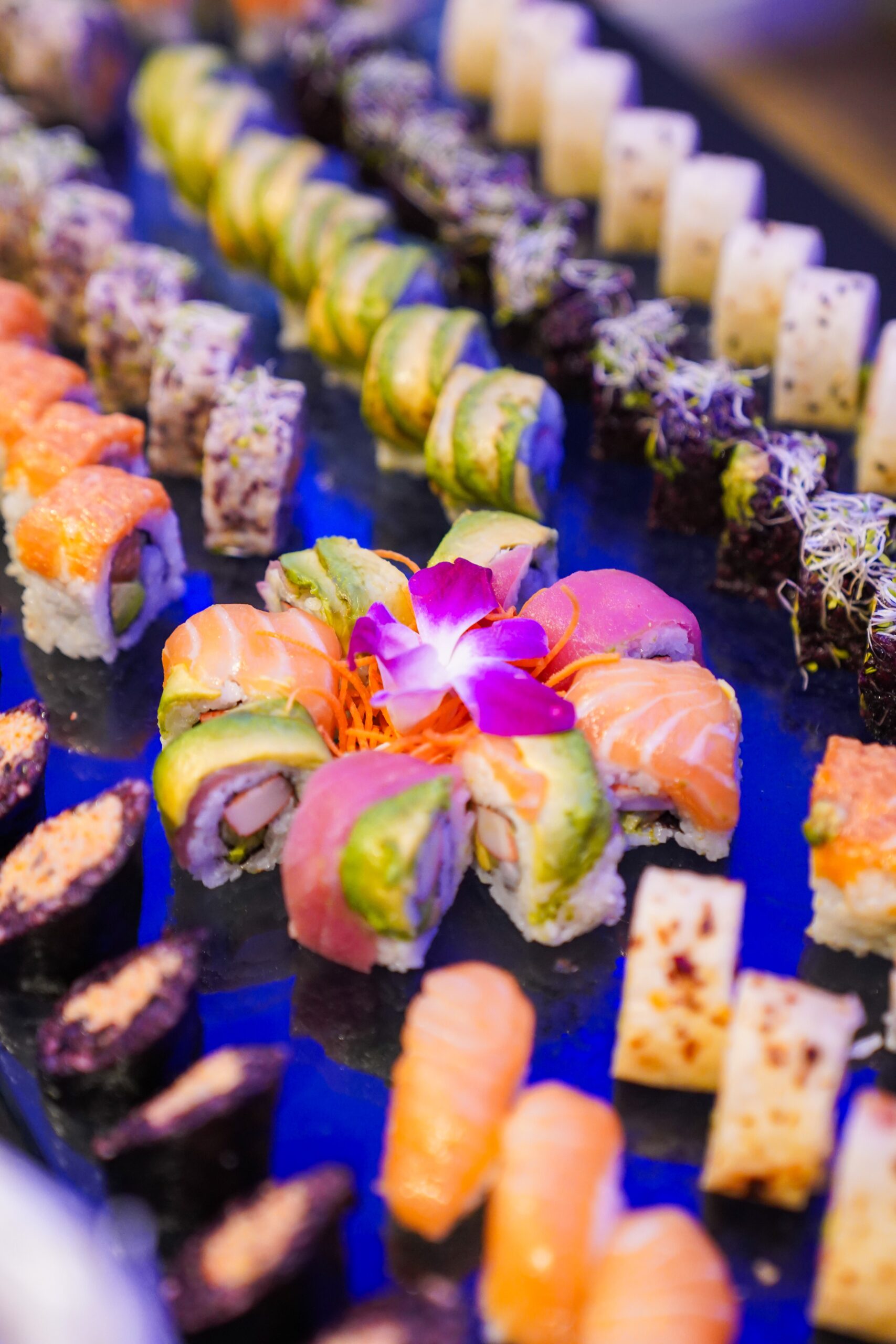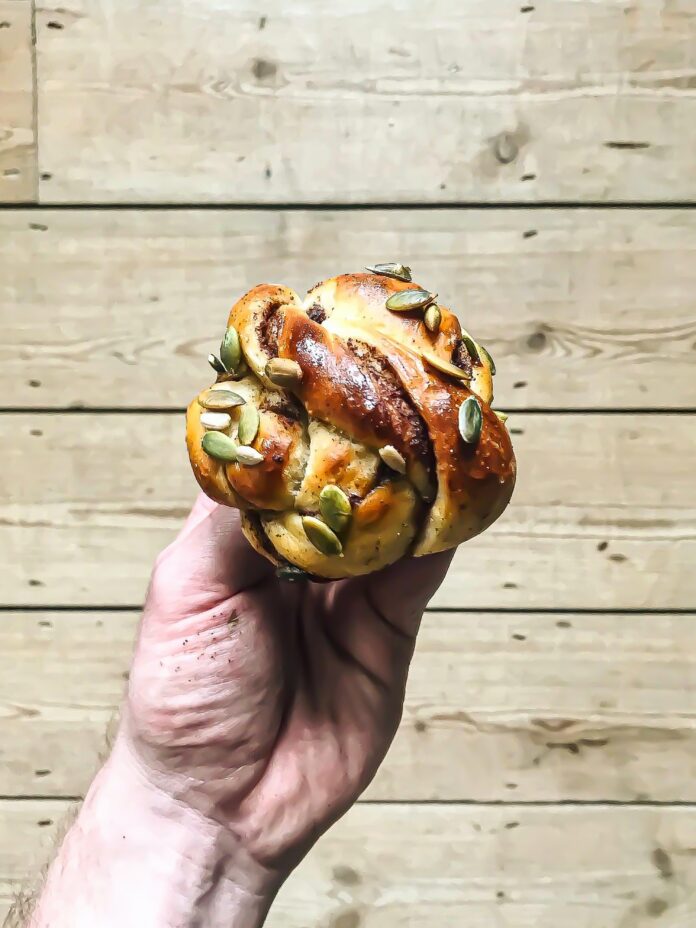I. Introduction to Vegan Baking
Vegan baking has seen a remarkable surge in popularity over recent years, enticing food enthusiasts with its health-conscious and cruelty-free approach. It revolves around crafting delectable desserts without any animal-based ingredients.
II. Essential Ingredients in Vegan Baking
A. Plant-based Substitutes for Dairy and Eggs
In vegan baking, traditional dairy and eggs find creative substitutes. Ingredients like almond milk, coconut milk, soy yogurt, and applesauce seamlessly replace milk, cream, and eggs, enhancing both texture and flavor.
B. Alternative Sweeteners and Flours
Opting for alternative sweeteners such as maple syrup, agave nectar, or dates significantly reduces refined sugars in vegan treats. Furthermore, flours like almond, coconut, and oat flour offer diverse nutritional benefits.
III. Tips for Successful Vegan Baking
A. Understanding the Science Behind Substitutes
Successful vegan baking often involves understanding the chemical reactions between different substitutes. For instance, using baking soda or vinegar creates a leavening effect without eggs.
B. Recommended Tools and Techniques
Investing in high-quality tools like silicone baking mats, non-stick pans, and an array of mixing utensils helps in achieving perfect vegan desserts.
IV. Exploring Flavorful Vegan Desserts
A. Decadent Cakes and Cupcakes
Vegan baking doesn’t compromise on taste. Indulge in moist, flavorful cakes and cupcakes made with plant-based ingredients, offering a diverse range of flavors.
B. Delicious Cookies and Brownies
From chewy chocolate chip cookies to fudgy brownies, the vegan spectrum of desserts caters to every sweet tooth, combining taste and compassion.
C. Unique Pies and Tarts
Experiment with fruit-filled pies and nut-based tarts that prove to be both visually appealing and delicious, all while being entirely plant-based.
V. Health Benefits of Vegan Desserts
A. Lower Cholesterol and Healthier Fats
Vegan desserts tend to be lower in saturated fats, promoting heart health and reducing cholesterol levels, fostering a guilt-free indulgence.
B. Increased Nutrient Content
Nutrient-rich ingredients in vegan desserts, such as nuts, seeds, and fruits, boost the overall nutrient content, offering a healthier dessert option.
VI. Sustainability and Ethical Aspects
A. Impact on the Environment
Choosing vegan baking reduces the environmental impact caused by animal agriculture, contributing to a more sustainable ecosystem.
B. Ethical Considerations in Vegan Baking
Vegan baking supports the ethical treatment of animals, aligning with compassionate living choices and advocating for ethical food practices.
VII. Vegan Baking as a Lifestyle Choice
A. Embracing a Compassionate Lifestyle
Vegan baking extends beyond food; it embodies a compassionate lifestyle that reflects mindfulness and ethical choices.
B. Social Impact and Awareness
By choosing vegan desserts, individuals contribute to a larger movement promoting sustainability, animal welfare, and overall social awareness.
Embracing Variety and Innovation in Vegan Baking
1. Fusion Flavors and Innovations
Vegan baking is not only about adhering to certain dietary restrictions; it’s an exploration of inventive and delightful culinary creations. From matcha-infused cupcakes to lavender-scented cookies, the possibilities for flavor experimentation are endless.
2. International Influence in Vegan Desserts
Various cultures across the globe have their traditional desserts, and many of these can be adapted to vegan recipes. Dive into the rich tapestry of global sweets and explore how to recreate these delights in a plant-based form.
Unveiling the Art of Substitutions and Adaptations
A. Art of Substitutions
Vegan baking involves an artful skill of substituting traditional ingredients with their plant-based counterparts. It’s about understanding the textures, consistencies, and flavors of each ingredient.
B. Adaptations for Allergies and Dietary Needs
Vegan desserts often cater to individuals with food allergies or specific dietary needs. The absence of dairy and eggs can be a savior for those with lactose intolerance or egg allergies.
Nurturing the Joy of Home Baking
1. Family-Friendly Baking Activities
Vegan baking can be an enjoyable family affair. Involving children in creating these guilt-free desserts not only fosters bonding but also teaches them about sustainable food choices.
2. Sharing the Experience
What’s better than baking your favorite vegan dessert? Sharing it with friends and family, sparking conversations about ethical eating and spreading the joy of delectable guilt-free treats.
The Importance of Presentation and Aesthetics
A. Visual Appeal in Desserts
Vegan baking emphasizes the aesthetics of desserts just as much as their taste. Decorating cakes or plating cookies can be a visually appealing and creative process.
B. Instagram-Worthy Desserts
The rise of social media has pushed the boundaries of dessert presentation. Vegan baking offers numerous opportunities to create visually stunning, ‘Instagrammable’ desserts.
Innovation and Experimentation in Vegan Treats
3. Incorporating Superfoods into Desserts
Superfoods, known for their rich nutritional content, can be seamlessly integrated into vegan desserts. From chia seeds to acai berries, these ingredients not only enhance flavor but also boost the health quotient of your treats.
4. Artisanal Touch in Baking
Crafting artisanal vegan desserts involves attention to detail and a touch of creativity. From hand-crafted chocolates to specialty bread, the process celebrates the artistry of baking.
Demystifying Misconceptions in Vegan Baking
A. Taste and Quality of Vegan Desserts
One common myth about vegan desserts is that they lack taste or texture. However, with the right ingredients and techniques, vegan treats can be just as flavorful and satisfying as traditional ones.
B. Complex Preparation of Vegan Desserts
Contrary to belief, many vegan desserts are simple to prepare and require no extravagant techniques. Some recipes may even be quicker and easier than their non-vegan counterparts.
Engaging with a Vibrant Vegan Baking Community
3. Joining Vegan Baking Forums and Groups
Online forums and social media groups provide a platform to connect with like-minded individuals, share recipes, troubleshoot challenges, and discover innovative baking techniques.
4. Collaborative Baking Events
Participating in or hosting baking events dedicated to vegan treats encourages creativity and fosters a sense of community, allowing individuals to exchange ideas and recipes.
Sustainability in Baking Practices
A. Waste Reduction in Vegan Baking
The eco-friendly aspect of vegan baking extends to minimizing waste. Ingredients in plant-based baking are often used in a manner that reduces food wastage.
B. Locally Sourced Ingredients
Supporting local producers not only ensures the freshness of ingredients but also minimizes the carbon footprint associated with transportation.
Continuous Learning and Evolution in Vegan Baking
1. Adapting to New Trends and Ingredients
The world of food is ever-evolving, and so is vegan baking. Embracing new trends and experimenting with novel ingredients keeps the practice exciting and innovative.
2. Learning from Failures and Successes
Not every baking attempt ends in a perfect dessert. Embracing failures and celebrating successes fosters continuous improvement and a deeper understanding of the art of vegan baking.
Conclusion: A Sweet Transition to Vegan Baking
Venturing into the world of vegan baking unveils a treasure trove of opportunities. From revamping classic recipes to crafting innovative new desserts, the journey is not just about cooking but about embracing a more mindful, health-conscious, and ethical way of life.













































